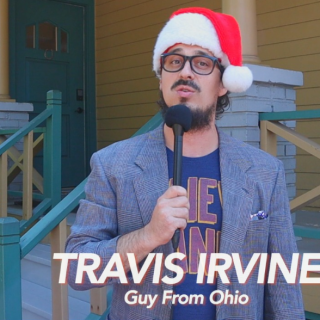Advertisement
This article first appeard on Reel Time with Richard Ades
Growing up with a degenerative muscular disease, Mats Steen found it harder and harder to take part in everyday life. As a result, the young Norwegian spent most of his time playing video games.
“His world seemed so limited,” said his father, Robert.
Finally, at the age of 25, Mats succumbed to his condition. That’s when Robert and his wife, Trude, realized that their son’s world hadn’t been so limited after all.
The reason is revealed in Benjamin Ree’s unconventional documentary The Remarkable Life of Ibelin.
The film explains that Robert, after losing Mats in 2014, announced the sad news to followers of his son’s blog, “Musings of Life.” The grieving father expected that to be the end of it, but he soon was inundated with condolences from people around the world who had come to know Mats through their shared love of the video game World of Warcraft.
In the real world, the adult Mats had spent his days in a wheelchair, unable to take care of his most basic needs by himself. That much, his parents knew.
What they didn’t know was that once his wheelchair was pushed up to the computer, Mats had entered the virtual world and become Ibelin, a muscle-bound hero who busied himself sprinting through verdant landscapes, fighting monsters and forming bonds with his fellow avatars—bonds that eventually evolved into real-life friendships.

Ibelin (right), Mats Steen’s virtual alter ego, spends time with Rumour, the avatar of a Dutch girl named Lisette.
As in Ree’s 2020 documentary, The Painter and the Thief, the director tells this fascinating story in a way that surpasses genre conventions.
In the early moments, Mats’s boyhood and young adulthood are captured through a combination of home movies and interviews with his parents and sister, Mia. Nothing out of the ordinary here. Later, though, the film immerses itself in images and characters derived from Mats’s favorite video game.
With the help of material gleaned from World of Warcraft archives, Rees uses animation and voice actors to recreate scenes from Mats’s online life.
In some cases, they’re tender, as when he first meets the flirtatious Rumour, the avatar of a Dutch girl named Lisette. In other cases, they’re painful, as when Ibelin lashes out against other avatars. Determined to keep his health problems to himself, Mats hides the fact that his character’s flintiness stems from his own frustration over his worsening condition.
In his better moments, though, Mats’s virtual alter ego could be kind and thoughtful. Interspersed with the animated segments are interviews with Lysette and others that reveal the ways in which Mats affected their lives for the better. The result was that their make-believe relationships grew into actual friendships—friendships that became all the more passionate once Mats finally revealed his real-world challenges.
The Remarkable Life of Ibelin benefits greatly from Rasmus Tukia and Ada Wikdahl’s expressive animation and Tore Vollan’s subtle score. Combined with Ree’s innovative approach to documentary-making, they turn a unique story into a rewarding and moving experience.
Rating: 4½ stars (out of 5)
The Remarkable Life of Ibelin (PG-13) will be available through Netflix beginning Oct. 25.



